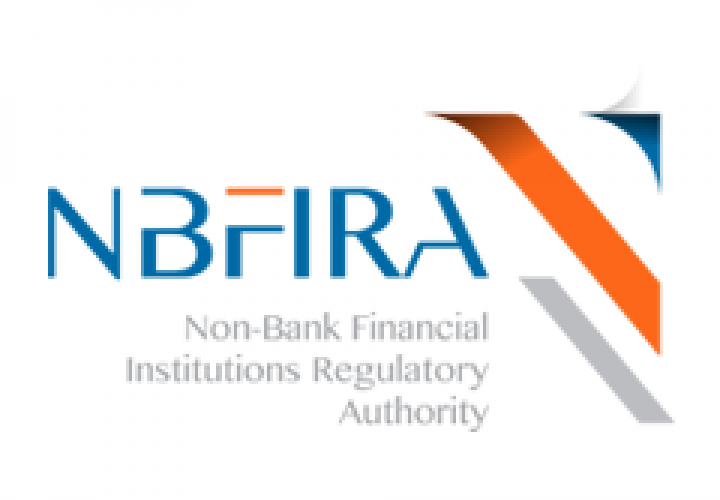Press Release: Financial Stability Council Meets
The Financial Stability Council (FSC) met on August 6, 2019 to deliberate on several market, regulatory and public interest developments and issues relating to the stability, performance and prospects for the financial sector.
Overall, the macroeconomic environment and the financial sector are assessed to be broadly stable with limited risks to financial stability.
The assessment of vulnerabilities, risks and conclusions were made with respect to the following:
- Global economic prospects are projected to moderate due to trade and geopolitical tensions, as well as policy uncertainty, with modest adverse impact on the domestic economy. Weak regional performance and adverse weather conditions also add to dampened domestic growth momentum. The global response to weaker growth and subdued inflation imply maintenance of low interest rates and further loosening of monetary policy, led by major central banks, with potential for capital flows to the deeper, more liquid and stable emerging markets. The external sector vulnerabilities (i.e. trade shocks, capital outflows and adverse exchange rate movements), which could present the greatest potential for elevated financial stability risks, were balanced with respect to Botswana.
- Other vulnerabilities, such as potential for excessive credit growth and leverage, maturity mismatches, liquidity management challenges and macro- financial linkages between banks and non-bank financial institutions, were generally contained and posed minimal risk to financial stability. Nevertheless, excessive maturity mismatches and occasional structural excess liquidity continue to constrain orderly management of market liquidity.
- The rate of increase in credit growth remains aligned to prospects for output and income growth, but continues to be heavily skewed towards the household sector. The financial health of the corporate sector remains good, albeit with isolated high profile closures and threats to business sustainability. Credit to the corporate sector relative to the size of the economy remains low by international standards. The real estate market continues to perform satisfactorily despite a similarly low sectoral credit to GDP ratio. Lack of organised housing market and publicly available property price index constrain price discovery and activity in the mortgage market.
- The deposit structure and concentration of funds remains skewed towards the business sector, institutional investors and large depositors. There are no immediate concerns, but there can be occasional liquidity management challenges, particularly for individual banks, with potential to constrain policy transmission. A less diversified and predominantly short-term base for deposits as well as volatile funds also detract from long-term business, project and infrastructure funding.
- Governance and accountability issues for some non-bank financial institutions that arose in the last two years are being addressed through regulatory and supervisory responses, as well as on-going investigations and prosecutions, as necessary. Therefore, risks of loss of funds and financial instability emanating from the subsector remain low. Even then, the respective regulators will continue to enforce and enhance measures that are aimed at improving professional and ethical conduct by both individuals and firms in the financial services industry by:
- promoting governance frameworks that will guide appropriate behaviour within financial institutions;
- strengthening individual fiduciary responsibility and accountability, including strict application of the ‘fit and proper’ requirements, and introducing responsibility mapping to ensure that individuals are held accountable for their actions;
- addressing the ‘rolling bad apples’ phenomenon, which relates to individuals accused of financial misconduct in one institution ending up at another financial institution without disclosure of previous misconduct. Therefore, financial institutions are being encouraged to introduce and maintain, for industry reference, a list of staff members terminated/released from duty on the basis of being found to have committed acts of impropriety, dishonesty and other forms of serious misconduct. The regulators also routinely reassess the fitness and propriety of employees in functions deemed capable of causing significant harm to the financial institution or its customers; and
- encouraging private sector responses to misconduct in the financial system.
- While Botswana remains on the Financial Action Task Force (FATF) list of jurisdictions with strategic anti-money laundering/combating the financing of terrorism (AML/CFT) deficiencies, the authorities continue to implement the required action plans to address identified deficiencies. Therefore, the associated vulnerabilities in this regard are expected to recede going forward.
- The payments infrastructure remains stable with orderly accommodation of new payment platforms and methods, in particular following the promulgation of the Electronic Payments Regulations.
A full analysis and discussion is contained in the 2019 Financial Stability Report to be published in September 2019. The Council also initiated discussion on a deposit protection fund and concluded consultation on the macro-prudential policy framework. The framework outlines the possible and situational policy responses to developments that could include prescriptions with respect to loan-to-value, debt-to- income, and debt service ratios, among others, as measures or tools to foster safe and sound lending practices.
Note to Editors
The FSC was officially launched in February 2019, and comprises senior officials of the Ministry of Finance and Economic Development (MFED), the Bank of Botswana (the Bank), Non-Bank Financial Institutions Regulatory Authority (NBFIRA), and Financial Intelligence Agency (FIA). These authorities have signed a memorandum of understanding (MoU) for the purpose of information sharing, cooperation and communication in the implementation of the macroprudential policy for Botswana.
For further information, please contact Dr Seamogano Mosanako. Head of Communications and Information Services, Bank of Botswwana. Tel: 3606083/ 3606382/ 3606315







